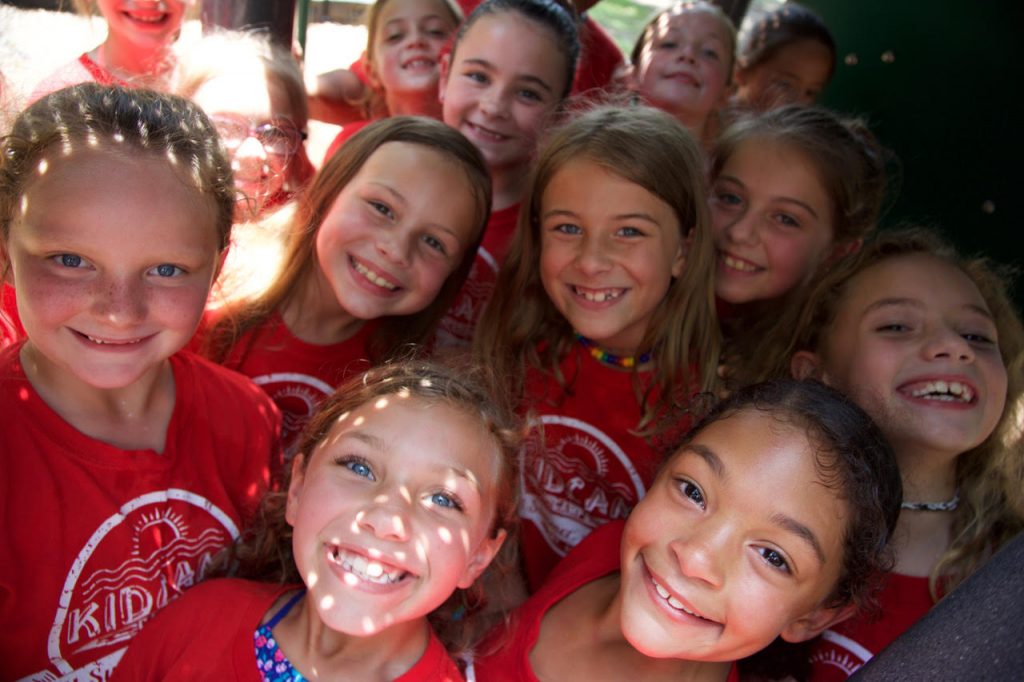December 30, 2019
“Camp can be very loud and overwhelming for some kids, but allowing kids to talk about their day teaches them to trust themselves.”
Summer camp is more than just letting kids loose for the summer, although it’s definitely that too.

A lot of parents dread summer. What are the kids going to do for almost three months? While it may seem easier to let older kids just stay home all day or ask your own retired parents to babysit the younger ones, there’s valuable experiences they could be missing out on.
Melissa Conner, president and CEO of Kidcam Camps, a company that has spent the past 46 years making the spirit of summer come to life through the power of camp, wants parents to know that there’s so much to be gained by sending their kids to summer day camps.
Independence
Even if you think your kids are pretty independent already, nothing tests that sense of freedom like setting them in a new environment — away from the familiar faces of parents, teachers, and school friends. While summer day camps are still structured, the schedules are more lenient (meaning they offer a wider variety of fun activities), not only allowing kids to decide what they want to do, but challenging them to think about what they want to do.
True, parents often decide these activities, but Conner says that it’s important to give their kids the reins. “This is their summer,” she says. “It’s their chance to be a little more independent, away from the pressure of school, and doing things they might not get to do at home, like playing in the dirt.”
A World Without Screens
An elimination of all screens everyday isn’t realistic, but for at least a few hours five days a week, your kids probably wouldn’t even miss their smartphones or xBoxes or tablets. They’ll be too busy swimming, going on field trips, deconstructing old computers, or learning a specialty sport, enjoying those classic camp traditions.

A World Without School
At school, kids are told what to do, when to do it, and how to do it. Even some specialized summer camps are structured in the same way. While kids who attend these are following a passion, kids still just need to be kids sometimes. At summer day camps, kids’ brains are set free from geometry, biology, and spelling tests, and can try new things without worrying about homework.
Summer day camp kids get out of the classroom and into new settings that are ideal for personal growth, development, and a large dose of the summer sun. “Camp is an opportunity for kids to experiment in how they socialize through shared experiences, mutual interests, competition, cooperation, and humor,” Conner says.
Reinvention
It’s amazing what a change of scenery can do for a kid’s spirit and sense of self. “Summer camp enables my daughter to see that there is an entire world outside of the home-and-school bubble,” Conner says. “She is urged to try new things, put herself out there, take some risks, and overcome obstacles.” Children tend to grow and reinvent themselves in ways that can only happen at camp, when the pressures of what’s expected go away.
Reflection
Reinvention also gives kids a chance to reflect — to think about themselves as a person away from home and school. By asking themselves who they are or who they want to be, kids open themselves up to other new experiences and life lessons. Or they conclude that they’re exactly who they want to be, at the moment, anyway. Either way, reflection, which is a foundational core of Kidcam, is a good tool to develop for life.
“Taking time at the end of the day to reflect is an important part of camp,” Conner says. “Camp can be very loud and overwhelming for some kids, but allowing kids to talk about their day teaches them to trust themselves.”
 Differences
Differences
Schools and neighborhoods should be safe places for kids to feel comfortable in, which is a good thing. But it also creates a kind of bubble that can cause a stagnation of an exposure to new ideas and people. Summer day camps blend many different backgrounds, creeds, viewpoints, and personalities into a cohesive, safe, and fun environment.
However, none of that really gets in the way, according to Conner. “It’s all about discovering the spirit of summer through the power of camp,” she says. “No one cares about what school or even grade someone came from. The labels are pulled off.”
Resilience
Resilience is a culmination of many of the above benefits. Learning to be independent, a chance to reinvent and reflect, and developing friendships with different people can contribute to a sense of self-reliance and confidence for kids who go to summer day camps. Through exposure to an entirely different world, campers gain resiliency, grow more independent, learn determination, unplug from technology, and engage with the real world.
Kids learn to become more self-reliant as they explore their interests and discover their strengths and weaknesses. They learn to trust their inner voice instead of depending on a parent or teacher to tell them what to do — a vital aspect of becoming a self-sufficient adult.

 Tim Meyer is Nola Family’s managing editor.
Tim Meyer is Nola Family’s managing editor.

